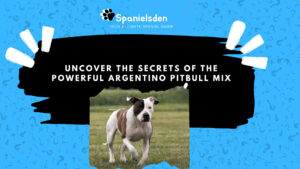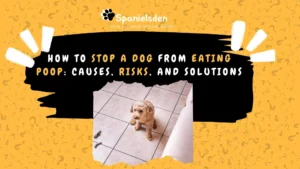Can Puppies Get Diarrhea From Teething?
Yes, puppies can sometimes experience diarrhea during the teething phase, though it’s not directly related.
Table of Contents
ToggleChewing on various objects to soothe sore gums might introduce bacteria, leading to digestive upset. Ensure a consistent diet and safe chew toys to help prevent diarrhea.
What Is the Teething Process for Puppies?
Start of the Teething Process

The teething process begins at around two weeks old when deciduous teeth or baby teeth start to emerge.
Development of Milk Teeth
By about three weeks old, puppies typically develop a full set of 28 milk teeth, which help them transition to solid food.
Transition to Adult Teeth
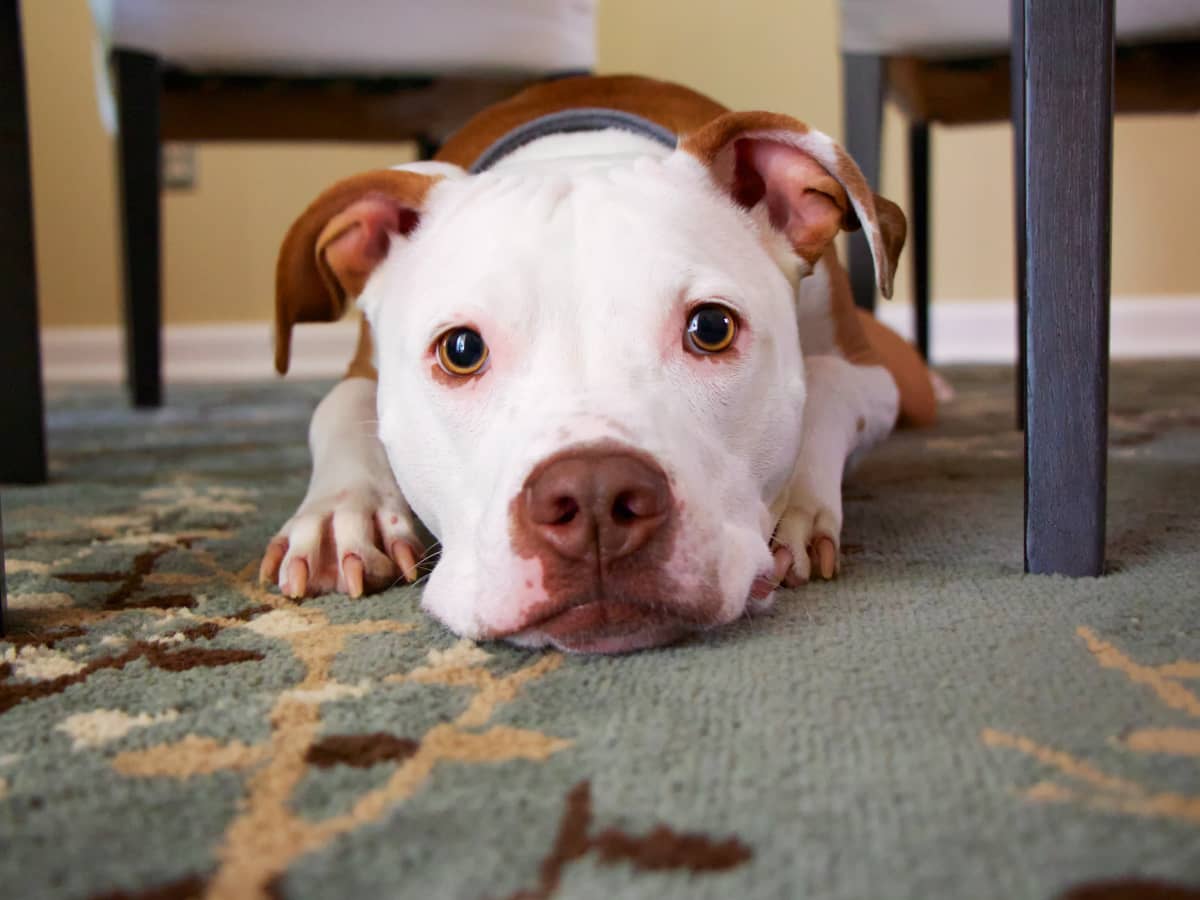
Puppy teeth begin to fall out as early as 3 to 4 months old, making way for adult teeth to grow in.
Duration of the Teething Phase
The teething phase can last until about 10 months old or sometimes up to one year, as permanent teeth grow in.
Supporting a Teething Puppy
Providing safe chew toys helps relieve discomfort and ensures proper alignment and strength as their adult teeth develop.
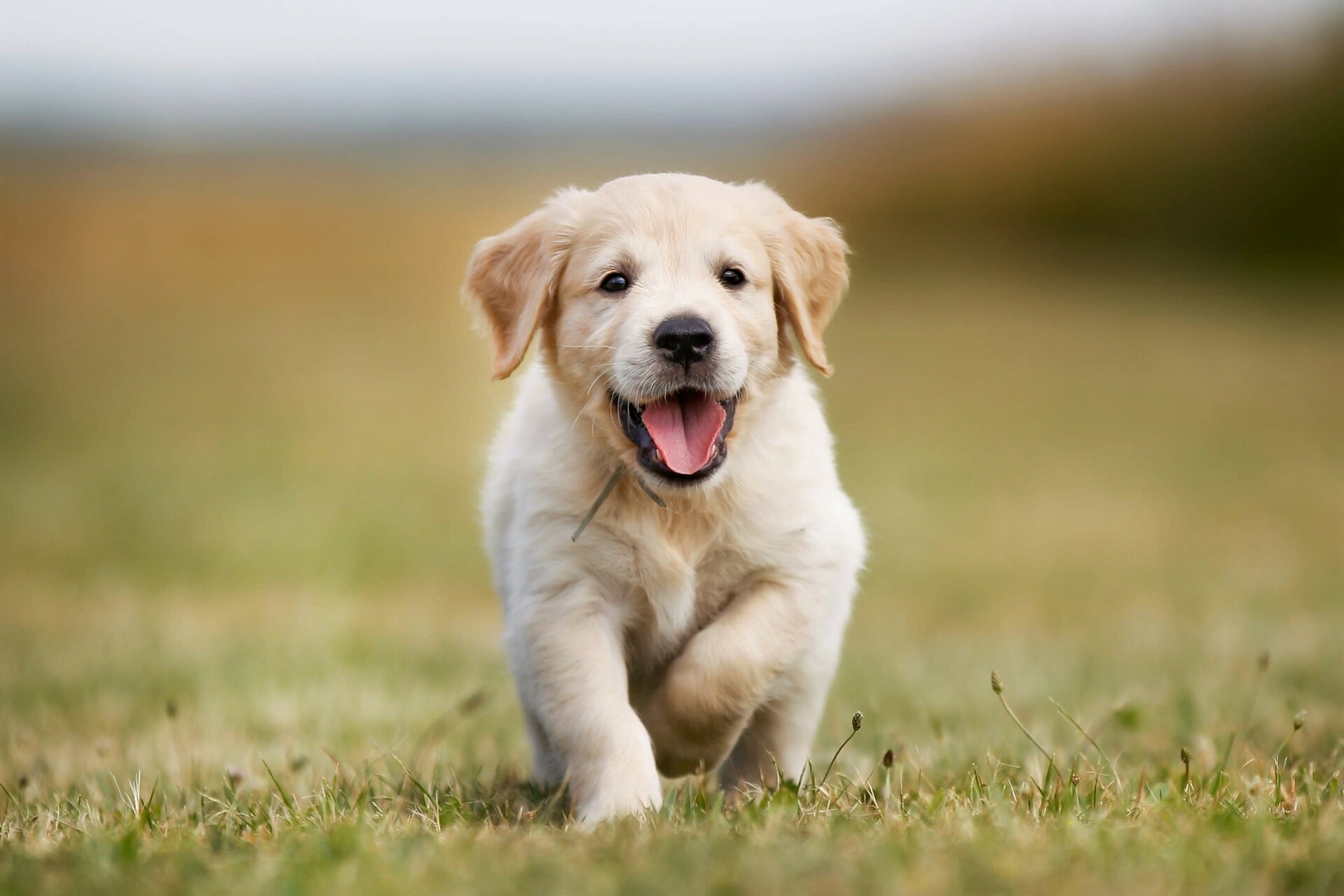
Understanding the Connection Between Teething and Diarrhea
Teething and Digestive Issues
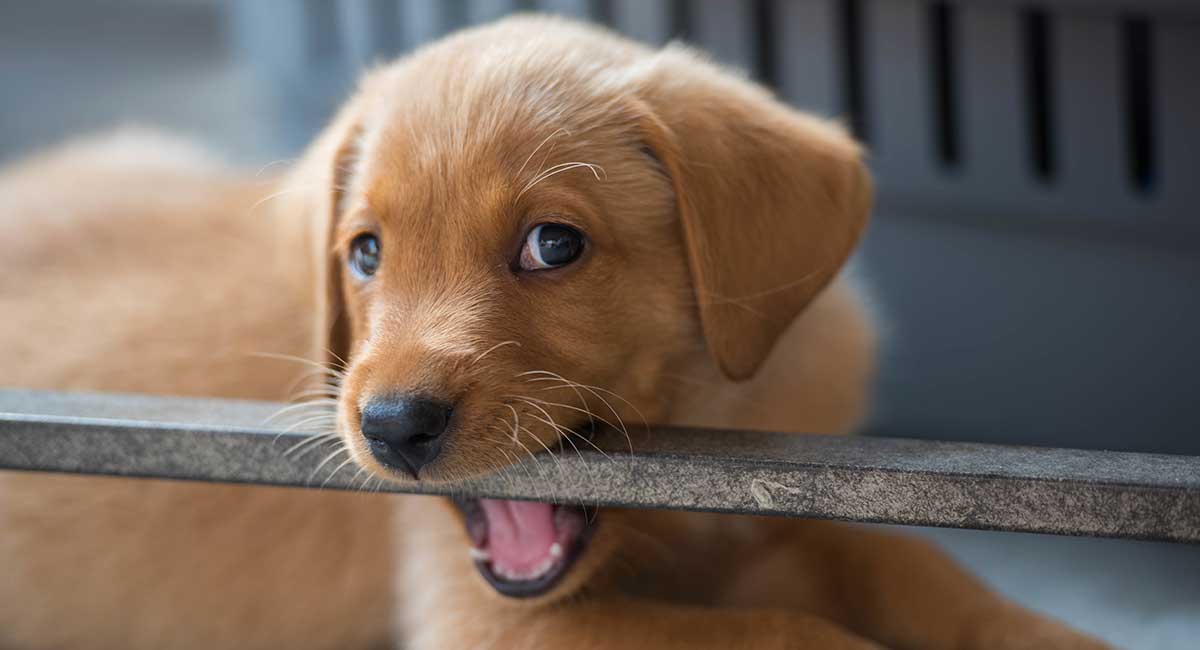
While teething diarrhea isn’t a medical condition, the behavior of a teething puppy, such as excessive chewing, can introduce germs that may cause digestive issues like loose stools.
Significance of the Teething Phase
Teething is a big milestone for your puppy, but let’s be honest—it can feel like a tough phase for both of you.
Duration of Teething Diarrhea

Don’t worry—it’s usually mild and clears up in just a few days with a little extra care.
Other Reasons for Diarrhea in Puppies
Non-Teething-Related Causes
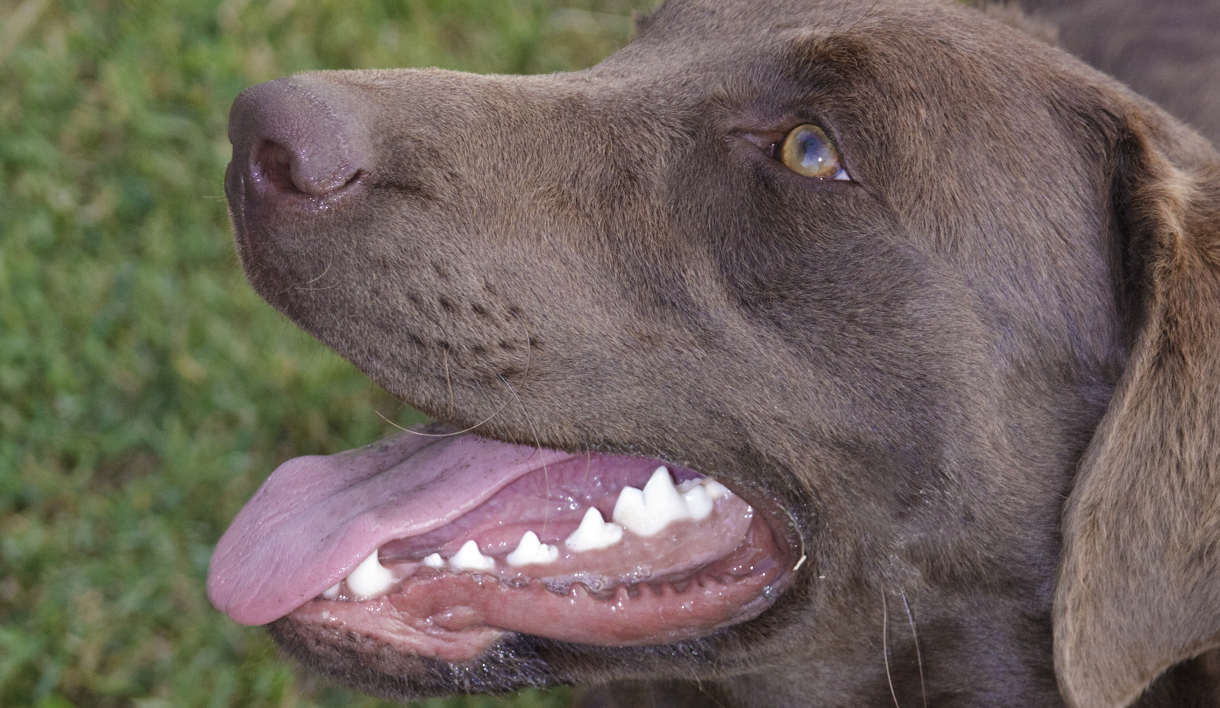
Diarrhea in puppies is often caused by factors not related to teething, such as dietary changes or eating human foods, toxic flowers, or scavenging through garbage.
Food Contamination and Infections
Ingesting contaminated food can result in bacterial infections like salmonella, leading to GI upset and loose stools.
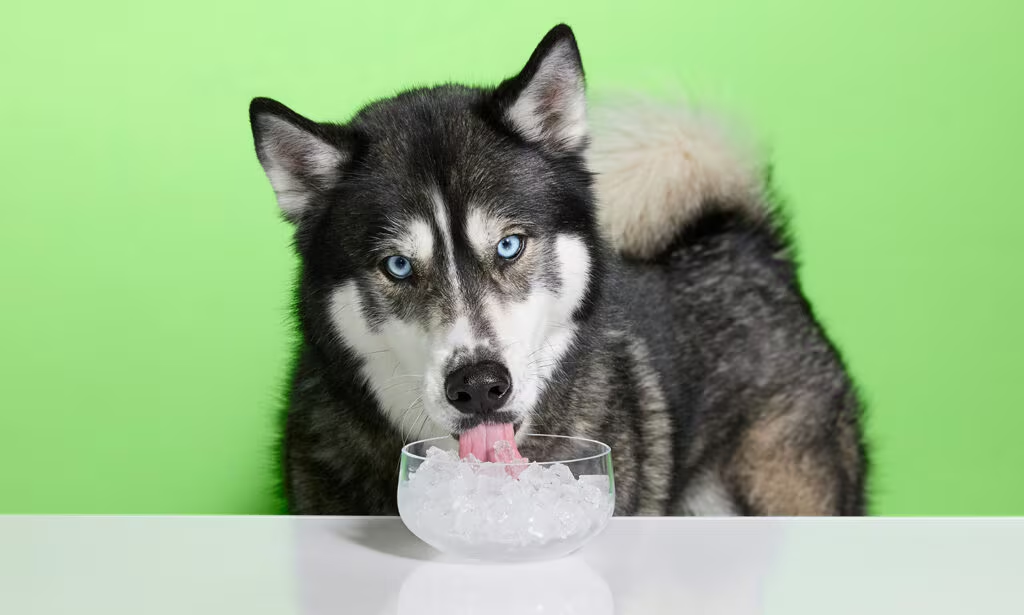
Parasites and Deworming Needs
Internal parasites such as worms or protozoa are common causes of diarrhea and may require deworming treatments.
Severe Health Risks
Serious illnesses like parvovirus, canine coronavirus, or other infections can cause symptoms like lethargy, vomiting, or bloody stools.
When Should You Be Concerned About Puppy Diarrhea?
Risks for Young Puppies
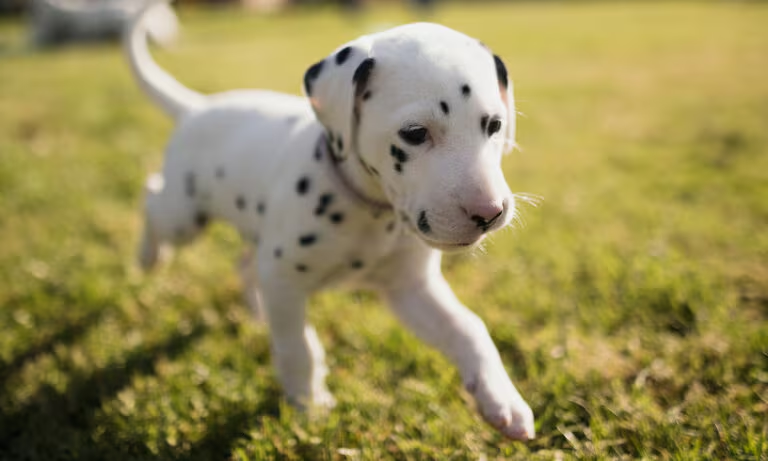
For young puppies under 4 months old or toy breeds, diarrhea can be more dangerous due to their small reserves compared to mature dogs.
Warning Signs to Watch For
Symptoms like vomiting, poor appetite, bloody diarrhea, abdominal pain, weakness, and lethargy should raise immediate concern.
Indicators of Dehydration
Signs such as pale or tacky gums might point to dehydration or even shock, which require urgent attention.
Acting Quickly to Protect Your Puppy
If watery poop persists or additional risk factors like dehydration arise, consult a vet promptly to ensure your puppy stays healthy and happy.
How You Can Help a Teething Puppy with Diarrhea
Adjusting Their Diet
When your puppy’s tummy is upset, try serving a bland meal like boiled chicken, plain rice, or lean ground beef. Adding a spoonful of pumpkin puree or probiotics can work wonders for their digestion.
Providing Easily Digestible Foods
Ensure all meals consist of easily digestible foods to help your puppy recover faster without straining their digestive system.
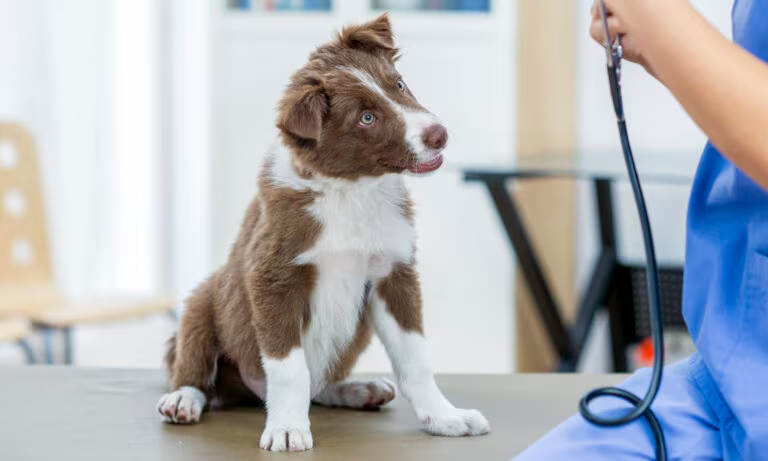
Click here to read about Senior dog drinking water but not eating in which we unveil the secrets of why your dog might not be eating food properly.
Maintaining Hydration
Keep your puppy hydrated with access to fresh water, as proper hydration is crucial to prevent complications like dehydration.
Creating a Comfortable Environment
Provide a comfortable space where your puppy can rest and avoid overexertion, which might worsen symptoms.
Seeking Veterinary Advice
If symptoms like severe lethargy or loss of appetite persist, consult a vet immediately for further guidance and care.
Preventing Teething-Related Diarrhea
Diet Consistency and Quality
Feed your puppy a balanced diet made up of high-quality pet food, avoiding human foods that can upset their digestion.
Supporting Gut Health
Incorporate probiotics into their diet to strengthen their gut health and make them less susceptible to diarrhea.
Providing Safe Chew Toys
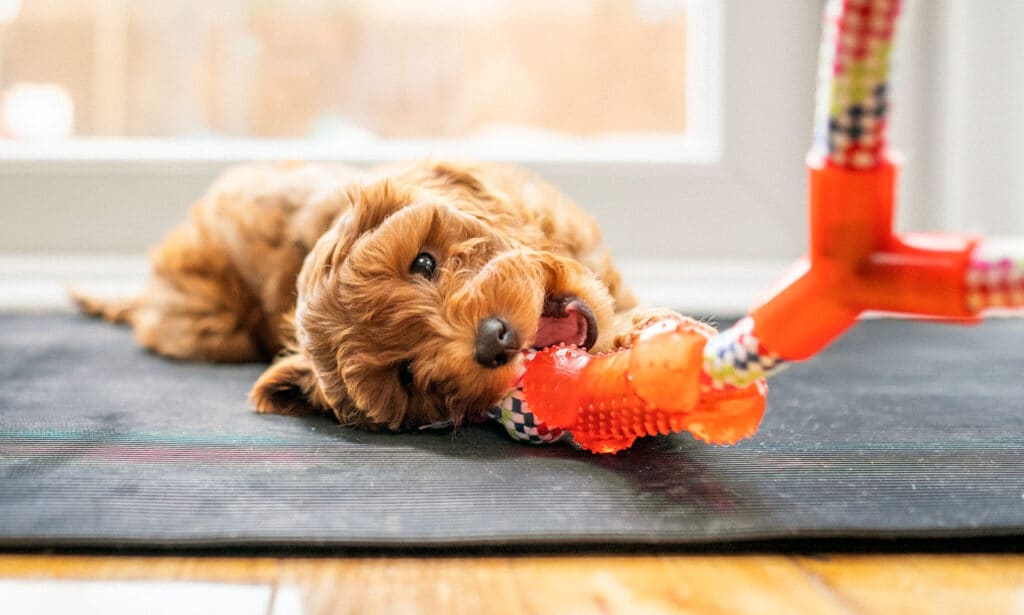
Offer appropriate chew toys to soothe their gums and prevent them from chewing on harmful or unsafe items.
Avoiding Harmful Substances
Keep your puppy away from garbage and toxic substances, which can lead to serious digestive problems.
Routine Veterinary Guidance
Stick to a routine and follow vet recommendations to maintain your puppy’s overall health and minimize diarrhea risks during teething.
Checklist for Managing Teething Diarrhea
- Provide safe chew toys to help soothe your puppy’s sore gums during the teething phase.
- Monitor for signs like loose stool, and ensure it doesn’t escalate into severe diarrhea or throwing up.
- Keep your puppy hydrated with access to plenty of fresh water.
- Introduce probiotics to support a healthy digestive system.
- Offer extra comfort and a teething buddy to help your puppy through this challenging time.
- If symptoms worsen, don’t hesitate to schedule a vet visit.
- Practice patience as your puppy works through teething, aiming for a wagging tail and healthy teeth at the end of this phase.
Final Words
Taking care of a teething puppy—and the occasional diarrhea that comes with it—can feel overwhelming, but the good news is it’s only temporary!
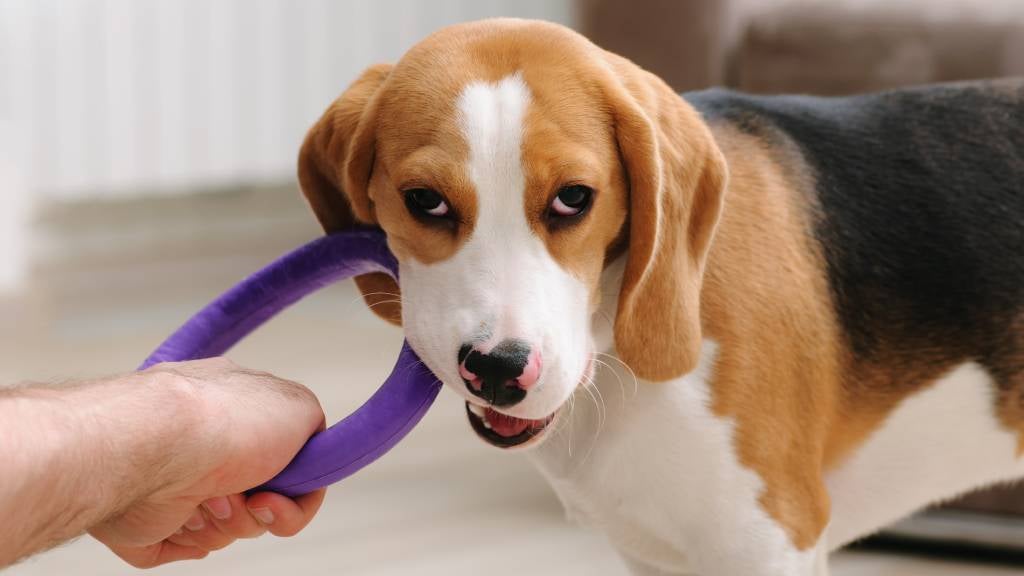
With patience, proper hydration, and attentive vet care, you can support your puppy’s digestive system and ensure their healthy development.
By addressing issues promptly and supporting their teething milestones, you’ll help pave the way for a thriving and happy puppy.
Click here to read about Dog behaviour before death in which we tell about its behaviour and how to end their journey peacefully.
FAQs
What Are Common Reasons for Puppy Diarrhea?
Diarrhea in puppies can be caused by dietary changes, ingesting toxins, or infections like viral or bacterial infections, as well as food allergies or intestinal parasites.
Can Stress Cause Diarrhea in Puppies?
Yes, stress is a common trigger for mild diarrhea in puppies, often caused by changes in their routine or environment.
Should I Be Worried About Mild Diarrhea in My Puppy?
Mild diarrhea is usually not dangerous, but monitor your puppy’s behavior and ensure proper water intake to avoid dehydration.
Can I Treat Puppy Diarrhea at Home?
A bland diet of boiled chicken and rice, combined with canned pumpkin and probiotics, may help ease symptoms. Always consult a veterinarian if symptoms persist.
When Should I Take My Puppy to the Vet?
Seek veterinary care if diarrhea is accompanied by vomiting, blood, or severe dehydration, as these can indicate serious issues in the GI tract.
Are Over-the-Counter Treatments Safe for Puppies?
Some supplements or probiotics may help, but never give over-the-counter medications without consulting a veterinarian.
How Can I Prevent Puppy Diarrhea?
Maintain a consistent diet, avoid feeding unusual foods, and address potential allergies or intolerances to reduce risk.




